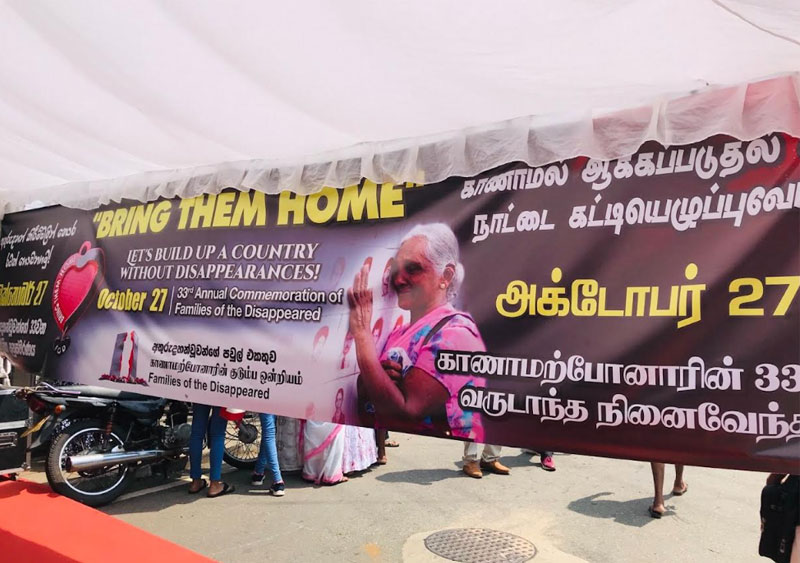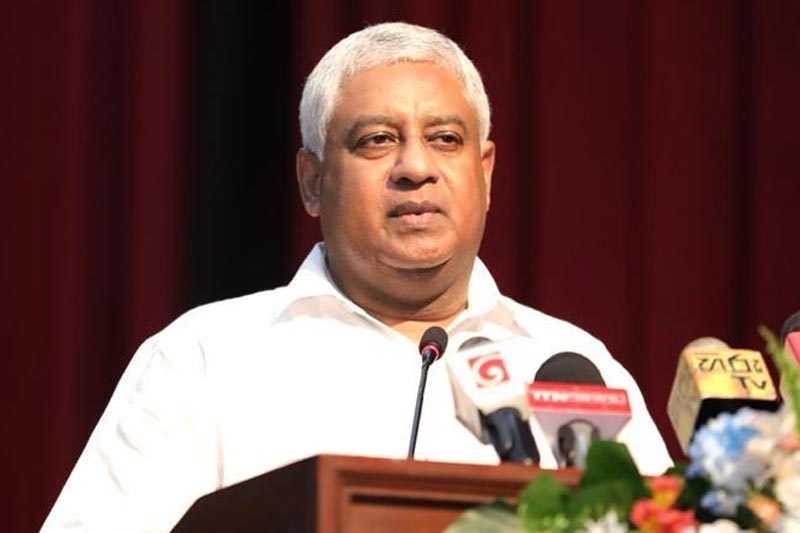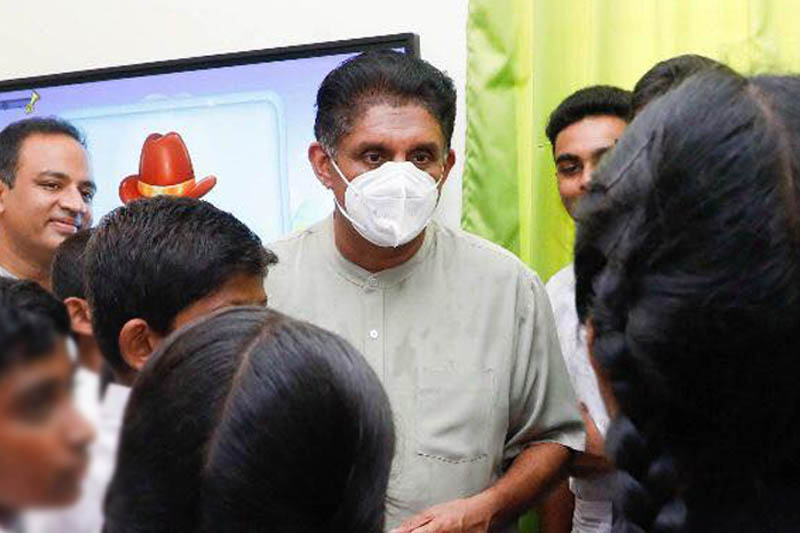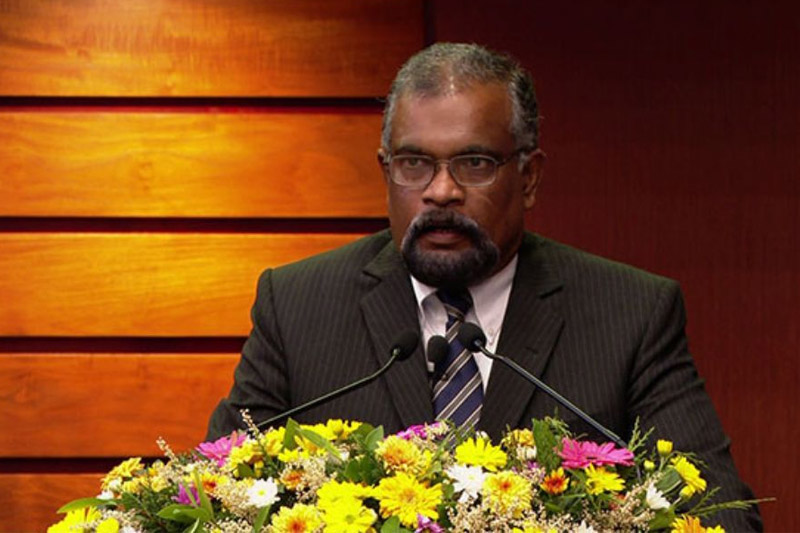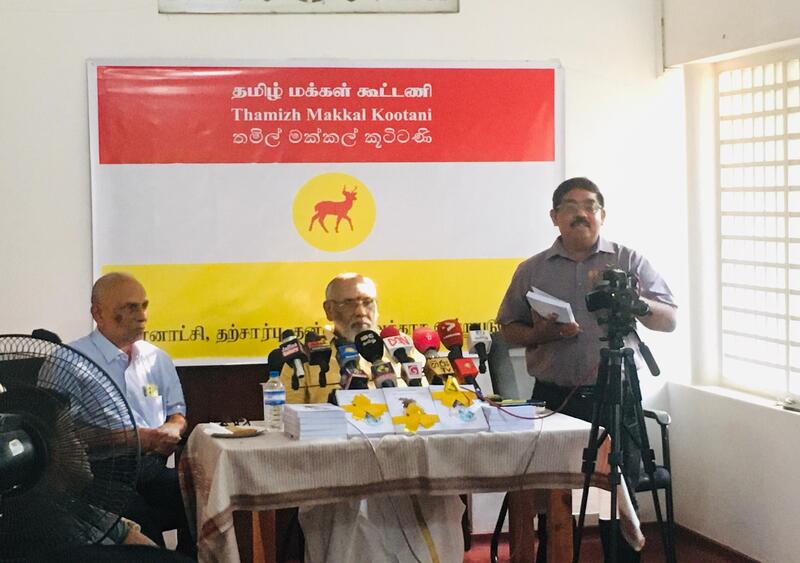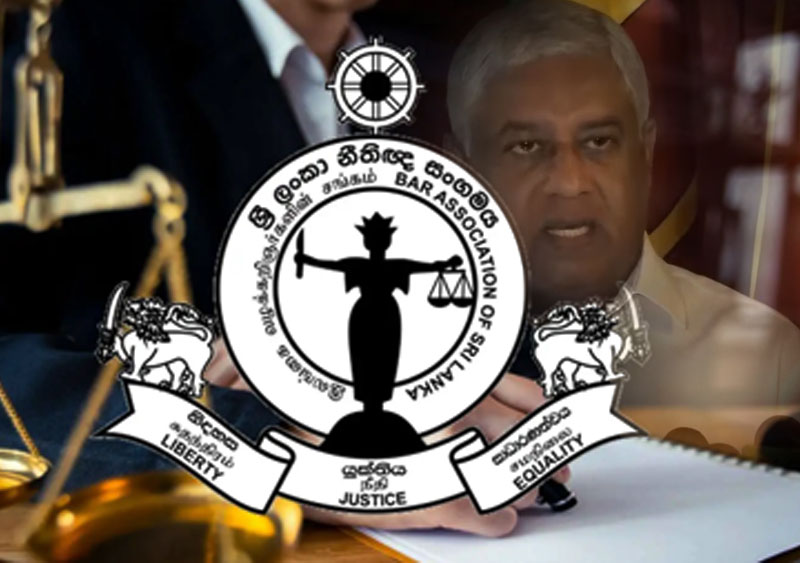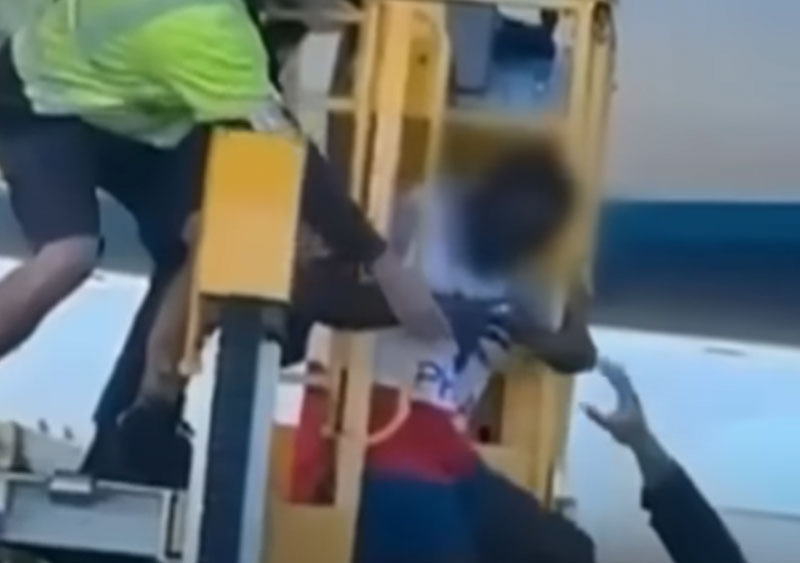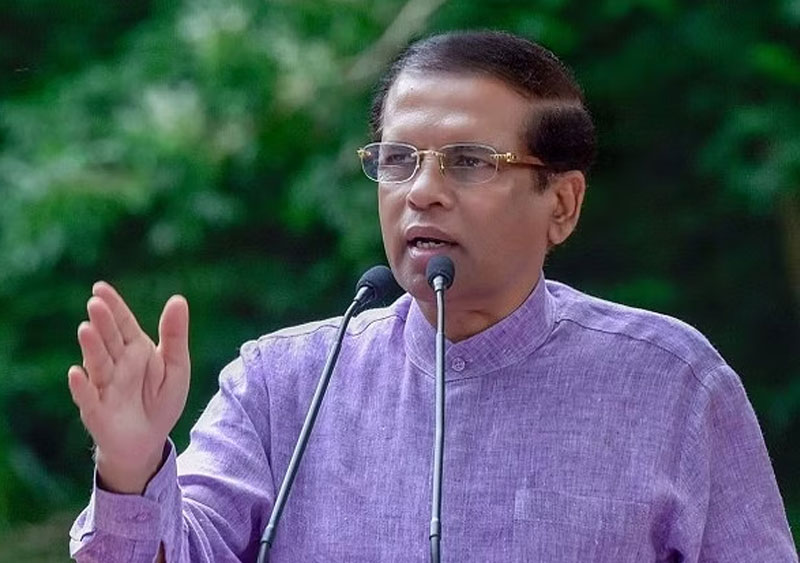After more than three decades of protests by Families of the Disappeared to learn the truth about what happened to their loved ones, the time has come for the Sri Lankan state to demonstrate conclusively that it is serious about establishing the truth and ensuring accountability, said the International Truth and Justice Project (ITJP).
In Sri Lanka, October 27th marks the thirty-third year that families, mainly from the south, have commemorated their disappeared loved ones and called for justice.
Their long and agonizing search for truth is a warning to thousands of Tamils who have likewise been protesting since the end of the war in 2009.
“The recovery of the truth around the enforced disappeared cannot just be a cynical exercise where the Government keeps pretending that it is tackling the problem to keep the international community happy but in reality is just waiting for the parents of the disappeared to die and the problem to go away,” said Yasmin Sooka, executive director of the ITJP.
One hundred and eighty eight Tamil parents of the disappeared from the war are already reported to have died before learning the truth while young men who attend protests or commemorations in the north and east continue to be picked up and tortured to silence them.
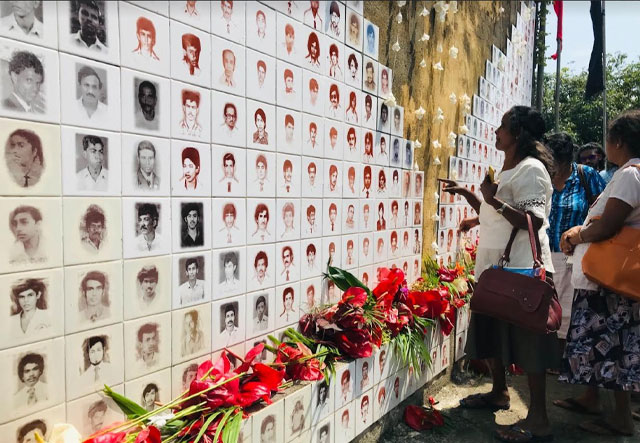
Sri Lanka historically has had one of the biggest case loads of unresolved disappearance cases – both from the armed insurrection led by the Janatha Vimukthi Peramuna (JVP), or People's Liberation Front, a self-declared Marxist party, and arising from the civil war against the Liberation Tigers of Tamil Eelam.
“Families have an inalienable right to the truth in terms of international norms and standards and domestic commitments made to treaty bodies – the setting up of successive commissions by the Sri Lankan government to investigate these issues won’t bring any solace or justice to the families of the disappeared, especially those from the JVP-era disappearances which have been extensively investigated already,” Sooka added.
If serious about accountability for disappearances in the JVP period the Government of Sri Lanka should take immediate steps as set out below:
• Respond forthwith to the questions asked by the November 2022 UN Working Group on Enforced and Involuntary Disapearance, Working Group on Arbitrary Detention and Special Rapporteur on extrajudicial, summary or arbitrary executions and the Special Rapporteur on the promotion of truth, justice, reparation and guarantees of non-recurrence letter on the role of the District Military Coordinator in Matale in 1989.
• Publish the names of the District Military Coordinators in every district between 1987-1990.
• Report to parliament on the progress of court cases and criminal charges recommended against scores of alleged perpetrators of enforced disappearance from this period who belonged to the police, the army and political parties.
• Publish the witness testimony taken by the All Island and Zonal Presidential commissions’ reports into JVP-era disappearances which is currently under a presidential seal until 2030.
If serious about accountability for disappearances during and after the civil war, the Government of Sri Lanka should take immediate steps as set out below:
Order the 58 Division to hand over the surrender list from 18 May 2009 as requested by lawyers in the habeus corpus case;
• Ensure the commanders and deputy commanders and battalions of the 58, 59 and 53 Divisions and the Special Forces and Commando Regiment of the Sri Lankan Army be interviewed by the Office of Missing Persons, as requested by the families of victims regarding what happened to the hundreds of people, including children, who surrendered to the army on 18 May 2009 at the Wadduvakkal Bridge?
• In videos (C4 execution video inter alia) there are clearly visible faces of soldiers – can evidence be supplied to prove these photos have been run through army personnel data bases and what the findings were?
Given the gravity of the situation regarding enforced disappearances over decades, and the government once again announcing its intention to establish another commission - namely the Truth and Reconciliation Commission - the international community including the UN and OHCHR should use the abovementioned steps to determine whether the Government of Sri Lanka is seriously committed to fulfilling the rights of victims and their families to the truth about the fate of loved ones.
The rights of victims have been reaffirmed in the new guidance note on Transitional Justice issued by the Secretary General of the United Nations in June this year.

